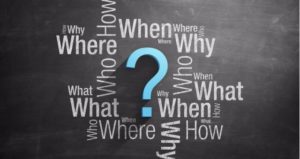As another year draws to a close, the editorial team at Faculty Focus looks back on some of the most popular articles of the year. Throughout 2017, we published more than 200 articles, covering a wide range of teaching and learning topics, including assignment strategies, cell phone policies, course design, flipped classrooms, online discussions, study strategies, and grading policies.
In this, our last post of the year, we reveal the top 17 articles for 2017. Each article’s ranking is based on a combination of factors, including e-newsletter open and click rates, social shares, reader comments, web traffic, reprint requests, and other reader engagement metrics.



 My friend Linda recently gave me a beautifully illustrated children’s book that contains nothing but questions. It reminded me how good questions, like beams of light, cut through the fog and illuminate what was once obscured. And so, to help us further explore and understand what it means to be learner-centered, I’ve generated a set of questions. For the record, these questions were not empirically developed, and they haven’t been validated in any systematic way. However, they do reflect the characteristics regularly associated with learner-centered teaching.
My friend Linda recently gave me a beautifully illustrated children’s book that contains nothing but questions. It reminded me how good questions, like beams of light, cut through the fog and illuminate what was once obscured. And so, to help us further explore and understand what it means to be learner-centered, I’ve generated a set of questions. For the record, these questions were not empirically developed, and they haven’t been validated in any systematic way. However, they do reflect the characteristics regularly associated with learner-centered teaching.









